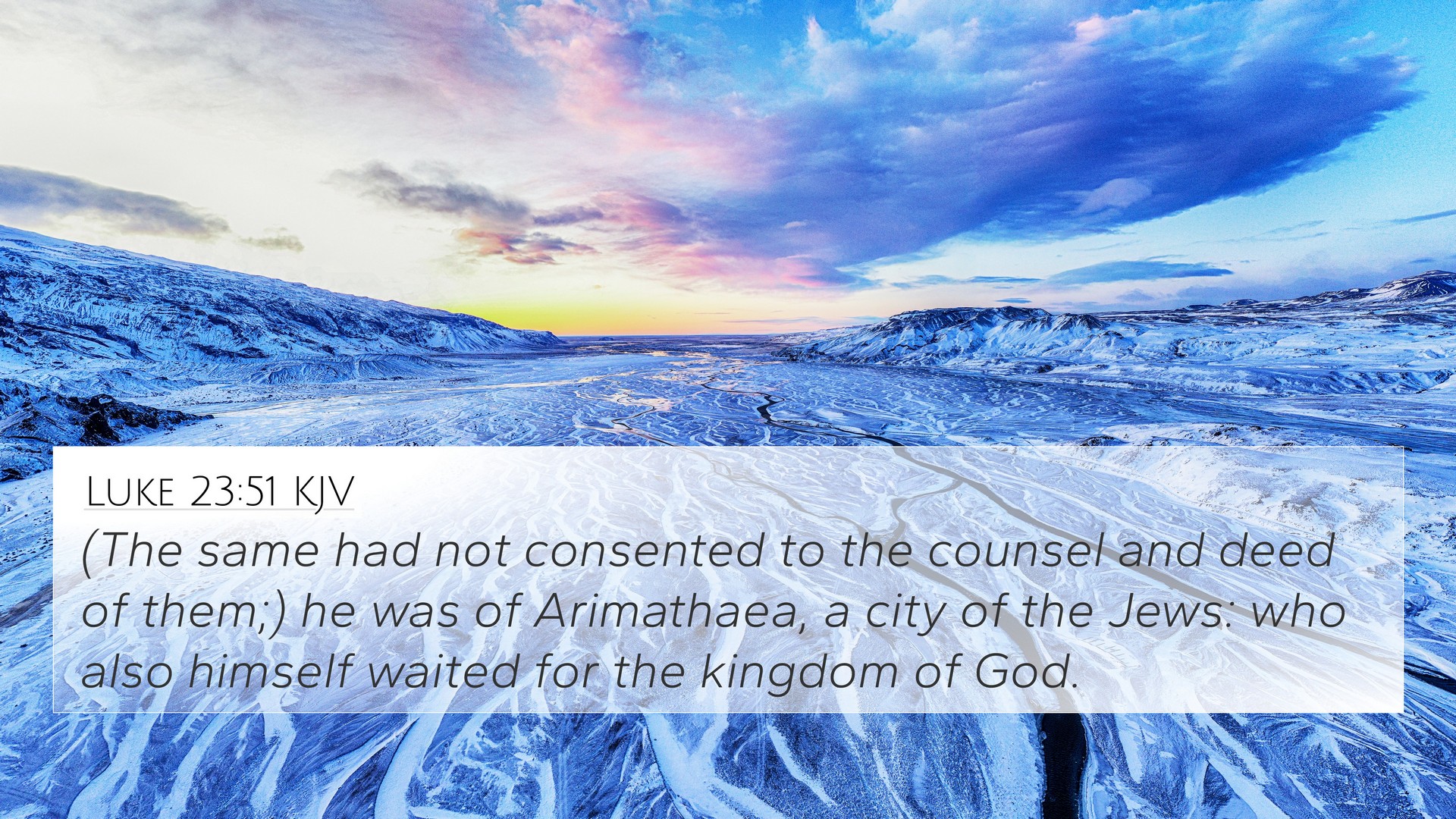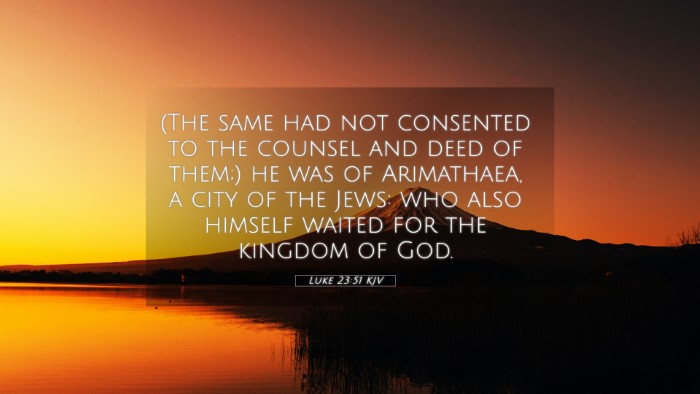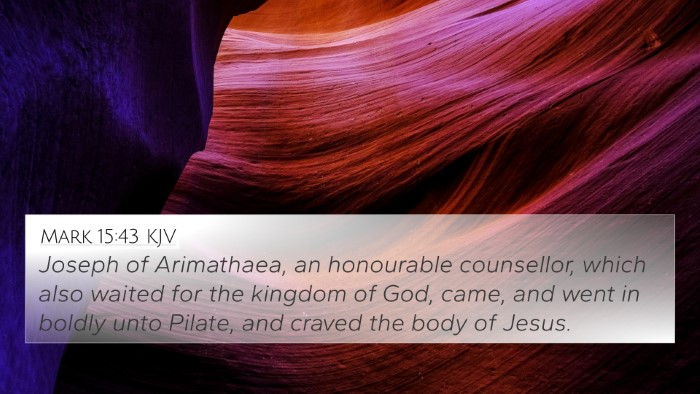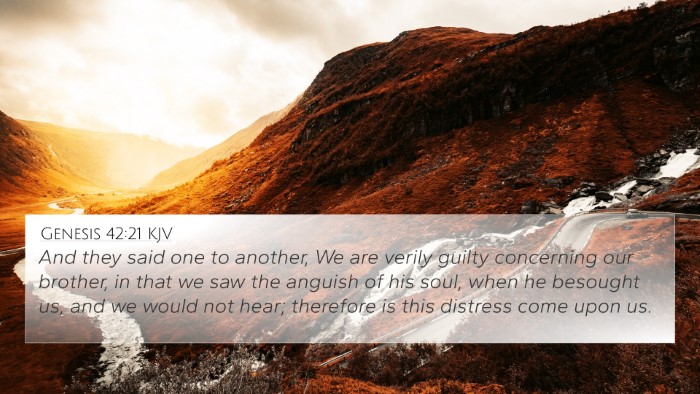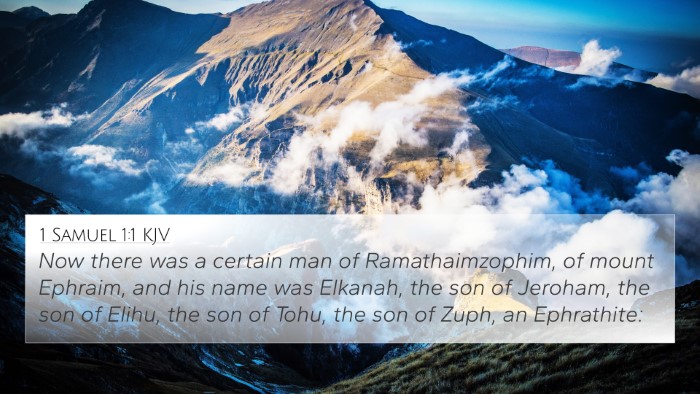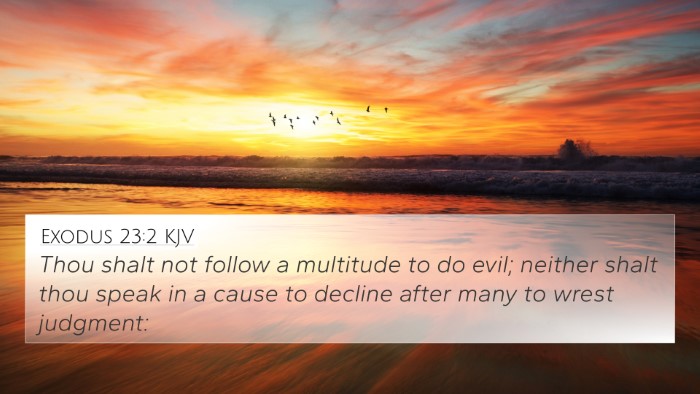Understanding Luke 23:51
Luke 23:51 states: "He was a good man, and just, the same had not consented to the counsel and deed of them; he was of Arimathaea, a city of the Jews: who also himself waited for the kingdom of God." This verse introduces Joseph of Arimathea, a figure of integrity and moral fortitude amidst the tumult of Jesus’ crucifixion.
Contextual Analysis
In the context of the Passion narrative, Luke 23:51 illustrates the character of Joseph, who did not participate in the plot against Jesus. His role as a secret disciple of Christ highlights a crucial theme of discipleship that runs throughout the Gospel. Here’s an exploration of the verse's meaning combined from public domain commentaries.
Insights from Commentaries
Matthew Henry
Henry emphasizes Joseph's righteousness and boldness. He notes that Joseph's refusal to consent to the unjust actions of the council points to his faith and courage in standing apart from societal pressures. Joseph embodies the principle of moral discernment and integrity.
Albert Barnes
Barnes adds that Joseph’s lineage from Arimathea signifies his Jewish heritage and his high social standing, which would give weight to his actions in requesting Jesus' body. This request demonstrated both bravery and an acknowledgment of Jesus’ kingship, emphasizing the hope of resurrection.
Adam Clarke
Clarke offers a perspective on Joseph as a member of the Sanhedrin who did not endorse the decision to crucify Jesus. His insightful acknowledgment of the coming kingdom of God showcases an eschatological expectation common amongst believers, further linking Joseph's actions to the broader Christian narrative of hope and redemption.
Thematic Links and Connections
This verse is significant not only for its individual meaning but also for how it connects with other scriptures throughout the Bible. Below are several Bible verse cross-references that highlight these connections:
- Isaiah 53:9 - Prophetic reference to Jesus being laid in a rich man's tomb.
- Matthew 27:57-60 - Parallel account of Joseph's burial of Jesus.
- John 19:38-40 - Details Joseph's courage and collaboration with Nicodemus.
- Mark 15:43 - Confirms Joseph as a respected member of the council.
- Acts 1:23 - Mentions the expectation for a new kingdom, similar to what Joseph hoped for.
- Romans 8:18 - Speaks to the glory that will be revealed to believers, like Joseph.
- Hebrews 11:1 - The faith of those who seek what is hoped for connects to Joseph’s actions.
Connecting Themes
Joseph of Arimathea’s story interweaves with themes of:
- Faithfulness - His silent support of Jesus amidst opposition reflects unwavering faith.
- Courage - Requesting Jesus’ body after condemnation shows bravery against popular opinion.
- Hope for Resurrection - His actions denote a belief in Jesus’ future kingdom, aligning with themes of hope.
- Justice and Integrity - Joseph’s character serves as a model for pursuing integrity in justice.
Conclusion
The narrative surrounding Luke 23:51 exemplifies significant characteristics of faith and morality. By exploring connections through various Bible verses, we gain a comprehensive understanding of Joseph of Arimathea not only as an individual but also as emblematic of the broader Christian tradition. The thematic Bible verse connections further enrich our interpretation, encouraging a deeper study through cross-referenced scripture.
Helpful Tools for Bible Cross-Referencing
In your journey, consider utilizing tools such as:
- Bible Concordance - A useful reference for finding related scripture passages.
- Bible Cross-Reference Guide - Helps identify verses that complement each other.
- Cross-Reference Bible Study - Methodologies for deeper understanding through connections.
- Bible Reference Resources - Comprehensive materials to aid in cross-referencing.
Engaging with Cross-Referencing
To find and understand the cross-references in the Bible:
- Utilize a Bible app with cross-referencing features.
- Consult commentary literature for deeper insights.
- Join study groups to discuss connections and themes.
- Engage with sermons or teachings that highlight biblical parallels.
